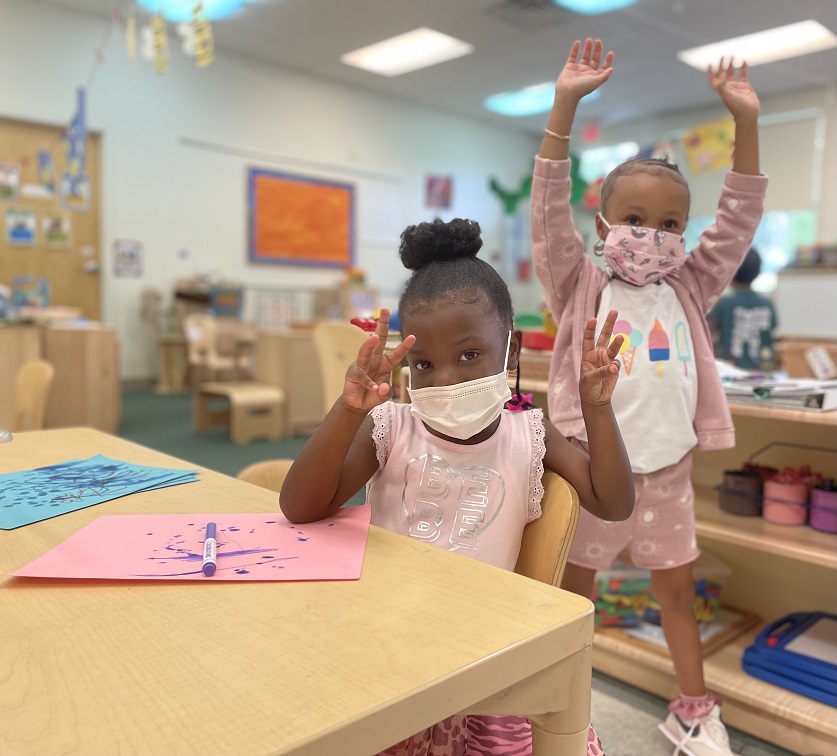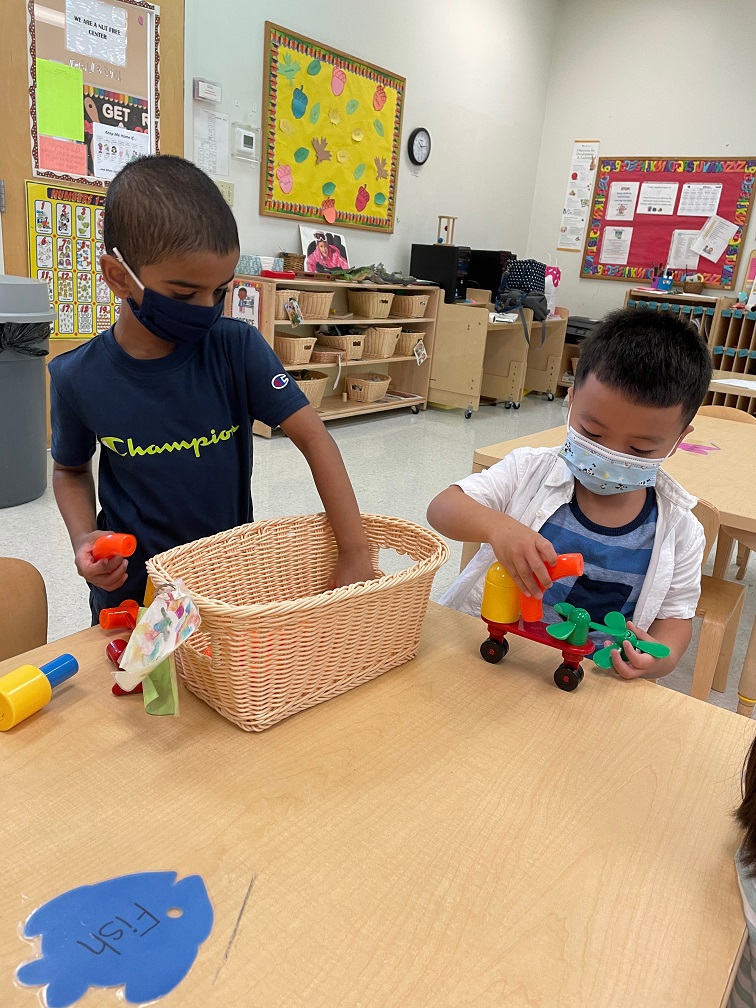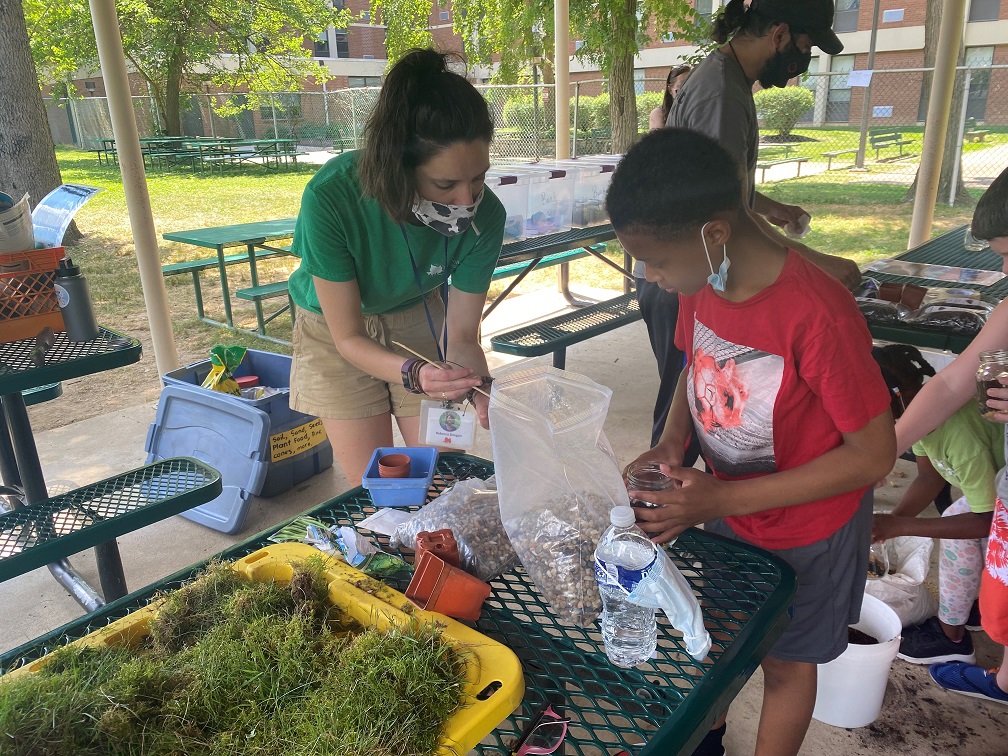
Federation Early Learning Services: Sustainable High Quality Childcare
Federation Early Learning Services (FELS) has been providing childcare to Philadelphians for over a century. As such, this nonprofit has had plenty of time to refine its offerings. That means that parents can leave their children in the hands of FELS staff knowing that their kids will receive excellent care. That’s certainly one worry that working parents can cross off their worry lists.
But FELS is more than just a childcare drop-off center. It’s also a place where children can learn and grow from infancy through elementary school. And that’s where we come in, because it’s what we want to support.
It concerns us greatly that so many children cannot read fluently by the end of third grade. We know that learning to read begins as soon as children are born. The children of working parents, in particular, may not be exposed to as much language and conversational give-and-take as they need to hone their pre-reading skills. We can see that FELS is doing a great job of filling in the gaps.
As always, we like to tell our readers about the work of our small grant recipients. To that end, we spoke with FELS Interim President & CEO Taka Agawa; Child Development Specialist Susan Garber; and Compliance Administrator Julie Gilbert:
Kars4Kids: FELS began in the 1900s as a means to provide childcare so parents could be free to work and remain economically independent. How far away from that mission is FELS, today? What demographic do you serve?
Taka Agawa: Our mission is still absolutely rooted in providing childcare so that parents can remain economically independent. We’re still serving in the Northeast Philadelphia Area today, and although the demographics have changed just because the neighborhoods that we’ve been operating in have changed, the mission of what we’re trying to accomplish is still the same.
Kars4Kids: How many centers do you run? All told, how many children do you serve?
Taka Agawa: We currently have five centers across the Greater Philadelphia Area and we’re currently serving just under 500 children.
Kars4Kids: Language development, sensory play, and socialization are key components of your infant care program. Can you tell us some of the ways the program provides for these important needs?
Susan Garber: At all of our FELS centers, we think of the whole child when developing the learning environment and daily lesson plans. The curriculum that FELS uses serves as a foundation for this process. Our infant care program is designed with this, and what we know as the stages of development, in mind. Infants are changing quickly and every day is a new experience.
Commonly referred to as the ‘sensorimotor stage’, infants until approximately age two learn by what is presented to them through their senses. We provide an environment where they can explore their surroundings safely. Cause and effect toys that they can interact with by, for example, kicking a mobile and watching it spin. A variety of materials such as books, balls, and blocks of varying shapes, sizes and textures, enrich the learning environment. Our teachers even introduce the children to age-appropriate art modalities.
The acquisition of language is an extremely important milestone for young children. This occurs long before the child actually speaks his/her first word. In our classrooms we begin by creating a loving and trusting environment. We feel it is vital that our teachers provide a warm, positive, nurturing relationship with the infants in their care.
Learning to communicate begins with the facial expressions, gestures and body language for the teacher and infant. When the infant turns their head, coos, gurgles, cries, or babbles, our teachers take this opportunity to engage in reciprocal communication with the infant. The face-to-face interactions and conversations with newborns help them learn the different sounds of people’s voices and how they express emotions. They make eye contact while smiling, talking, and singing. Meantime, playing copycat helps very young children get a sense of the give-and-take nature of conversation. All of what we do supports infant socialization, which is the foundation of communication, encouraging healthy language development, and even empathy.

Kars4Kids: FELS offers both Head Start and Pre-K Counts. Can you tell us about these programs, and the difference between them? Who is eligible for these programs?
Taka Agawa: Our Head Start and Pre-K Counts programs both provide preschools for families who are eligible based on income requirements and, although the funding sources differ slightly, they both provide high quality education and care to children who are three- and four-years-old. Priority is given to families whose income is at or below a certain percentage away from the federal poverty level.
Kars4Kids: FELS offers Before and After Care for school age children. There’s a lot going on there, but can you give us a taste of what is on offer for the kids?
Taka Agawa: The aftercare program for school-aged children provides the parents with what we call “rapid round care.” This means that, outside of their elementary school programs, the children have time for enrichment activities and fun with kids that are similar ages. We utilize some of our outdoor spaces during the warmer periods so that they can get outside and have fun.
Kars4Kids: Talk about the Jewish heritage aspect of your programming at FELS. Presumably, not all the children in your programs are Jewish. What is the takeaway for your young participants? Are there specific Jewish values from which all children can learn? How do you impart these lessons?
Taka Agawa: We are an organization founded on Jewish values, though we do serve and employ within a very diverse community. Approximately 80% of the children that we serve are not of Jewish descent and yet choose FELS as their childcare provider. This speaks to how universal the values and ideas of Judaism are across different cultures. Whether it be around trustworthiness, responsibility, caring, kindness, being keepers of the earth, role modeling, community, respect, and/or fairness, these are all things that our families and our children can value.
I believe that our representation of Judaism within our community is a great way to passively fight antisemitism and to promote inclusion at the earliest stages of life for our children. We’re doing a tremendous thing by sharing the core values of Judaism, our core values as an organization, to those who may not typically be exposed to this beautiful religion.
Kars4Kids: Can you give us an overview of your preschool summer day camp?
Julie Gilbert: Each summer, our programs are transformed into a camp with all of the activities and friendships children will cherish. This ten-week camp includes weekly themes, enrichment specialists, and special activities to add to the fun-filled, exciting, and enriching atmosphere.
Kars4Kids: Camp Woodlight sounds beautiful! What ages attend this camp? What sort of activities are offered?
Taka Agawa: Camp Woodlight is for kids aged 6- to 11-years-old and runs from mid-June until the end of August, right before the school year starts for the public school district. The activities at Camp Woodlight are a blend of what you would find in an early learning center and a typical summer camp. I do think that there are ways to learn through fun and play, and we definitely find that balance at Camp. Our Paley Early Learning Center has an incredibly large outdoor space with multiple play spaces, including an open field, playgrounds, a pavilion, and a black asphalt play area where they can have fun with basketballs and what not. There’s a multitude of things that our children can do at Paley ELC and we know that it’s fairly rare to find a school or early learning center in a neighborhood community with such a large space. We’re really proud to host Camp Woodlight there.

Kars4Kids: What’s next for FELS?
Taka Agawa: We want to take a 21st century approach to how high quality childcare can be provided. We want to explore the ways to make what is being labeled as an unsustainable business, sustainable again. We want to lean into the fact that we are a nonprofit providing this high quality childcare and education to the families that typically could not afford it. I think all of the things that we have stood for and still stand for today are worth fighting for in the future — and we plan to do just that.